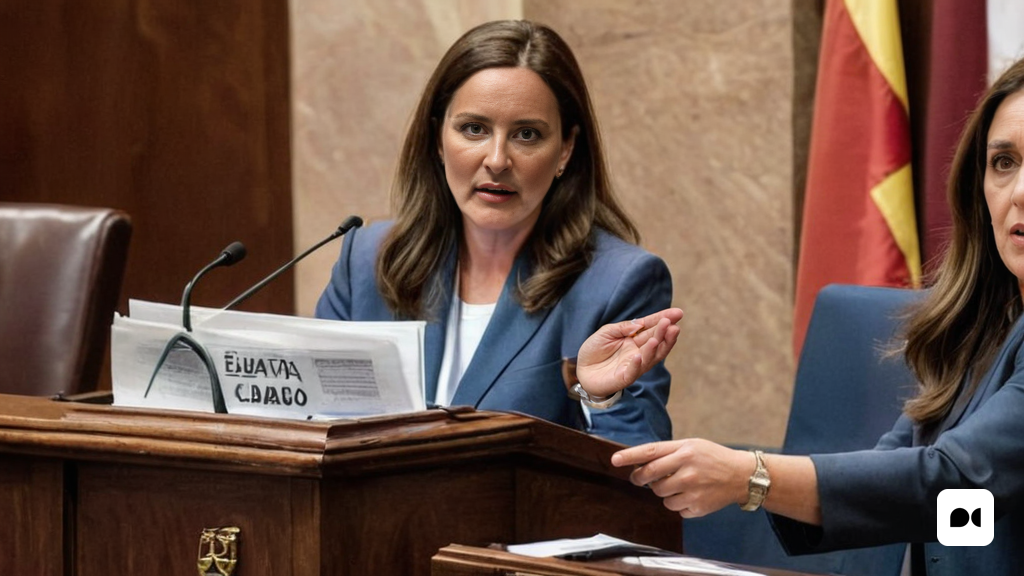Vox presents Proposal to repeal the Law of Democratic Memory and Recognition of the Balearic Islands
The political party Vox has presented a Proposition in the Balearic Parliament with the aim of repealing the Law of Democratic Memory and Recognition of the Balearic Islands, commonly known as the Law of Democratic Memory, which was approved in 2018 during the first term of the socialist Francina Armengol. The plan to repeal this regulation is part of the legislative agreement reached between the Popular Party and Vox. According to this agreement, Vox committed to abstain from the investiture of Marga Prohens as president of the Government, which finally happened.
Vox’s arguments for repeal
Alleged discrimination due to the Democratic Memory Law
Vox argues that the Democratic Memory Law attacks the equality of Spaniards, since, in its opinion, it violates article 14 of the Constitution, which guarantees fundamental rights. According to the party’s vision, this law discriminates and excludes a part of the Spanish population based on their opinion, personal, social or historical circumstances, such as, for example, the faction in which they participated during the Civil War. In Vox’s opinion, this fosters resentment and hinders the recognition of all those who, at any time in history and for various reasons, fought for Spain, regardless of which side they were on.
Alleged violation of the right to ideological freedom
Another argument presented by Vox is that the Democratic Memory Law represents a clear violation of the right to ideological and thought freedom enshrined in Article 16 of the Constitution. The party argues that this law imposes a single official narrative and limits freedom of expression, thus preventing the public manifestation of individual beliefs. Vox maintains that laws that attempt to manipulate history do not contribute to peace, democracy or the protection of fundamental rights.
Questioning the Democratic Memory Law
Interpretation of historical memory by Vox
Vox misinterprets historical memory as an attempt to divide Spaniards instead of considering it as a tool to heal the wounds caused by the Civil War and the Franco dictatorship. The party affirms that the Democratic Memory Law does not pursue the values of freedom, respect and tolerance that according to them characterized the Transition period, but rather interferes with the individual conscience of Spaniards, shapes their memory and limits the freedom of opinion, even penalizing the work of historians if it does not conform to a partisan interpretation of historical facts.
Historical contextualization according to Vox
Furthermore, Vox places the events that led to the Civil War in the context of the proclamation of the Second Republic in 1931, arguing that these events represented a climate of social instability, institutional crisis, and exclusion of opponents. For political formation, this period between 1931 and 1945 was marked by the brutalization of politics, the dehumanization of the other and driven by ideological passions at the European level.
Achievements of the Democratic Memory Law
Recognition and vindication of victims
It should be noted that the Balearic Democratic Memory Law has allowed public institutions to investigate and clarify the facts related to the violations of rights during the Civil War and the Dictatorship, as well as to identify the different categories of victims – social, professional or cultural organizations. , political parties, unions, Masonic lodges, feminist or LGTBI movements, victims of bombings, stolen babies, etc. – through a Census of Victims of the Civil War and the Franco Dictatorship.
Recovery and recognition of objects belonging to victims
Furthermore, thanks to this law, it has been possible to recover and restore more than 800 objects, such as elements of clothing, from the graves of the Son Coletes cemetery in Manacor, and the Porreres cemetery, to return them to their families. Some relatives have chosen to transfer the objects to Museum Sections of Democratic Memory created under this regulation.
Direct support to victims and their families
Likewise, a Direct Care Office has been established for the victims of the Civil War and Francoism and their families, as well as new protection for the Spaces and itineraries of Democratic Memory and Recognition. This law has also allowed the declaration of a symbolic date of remembrance and vindication of democratic values and the fight for freedom, as well as the identification and elimination of symbols and mentions related to Francoism that had to be removed by public institutions.

